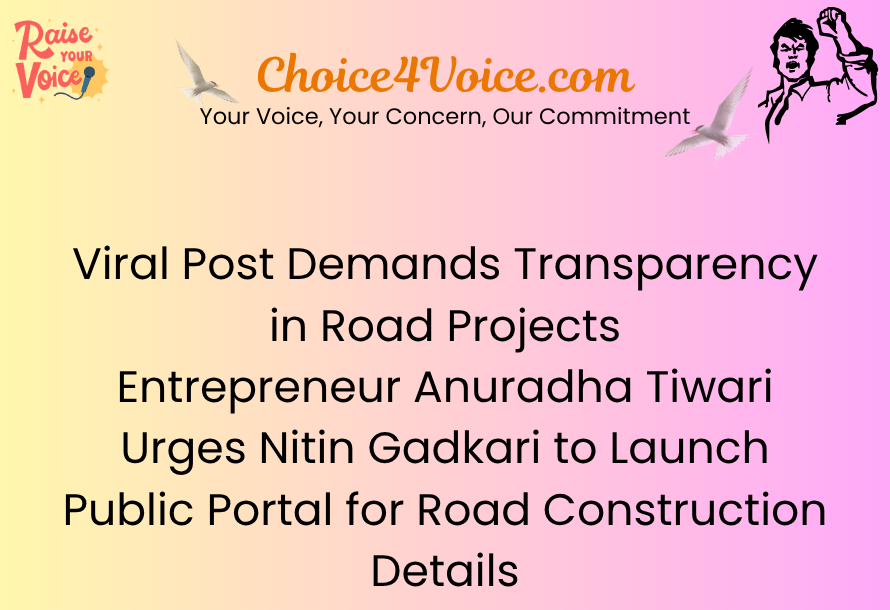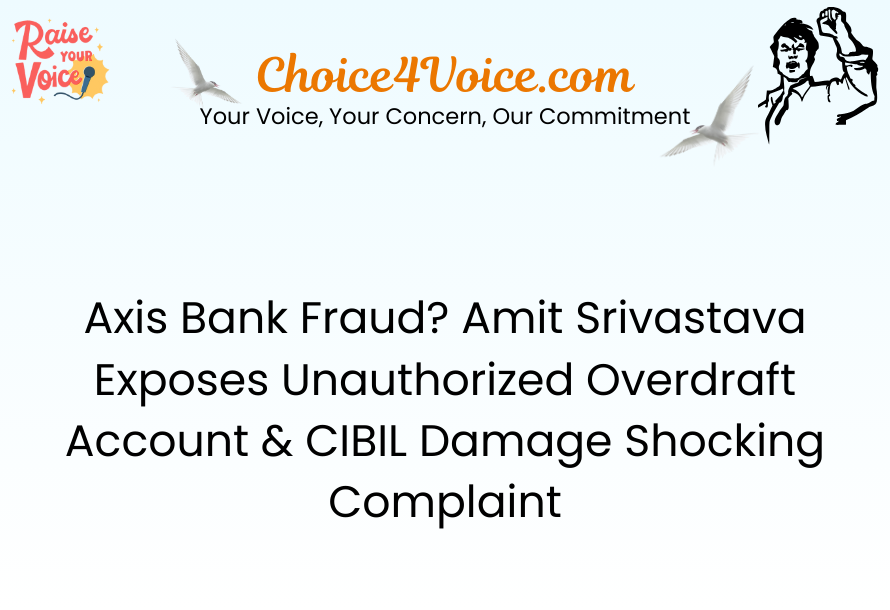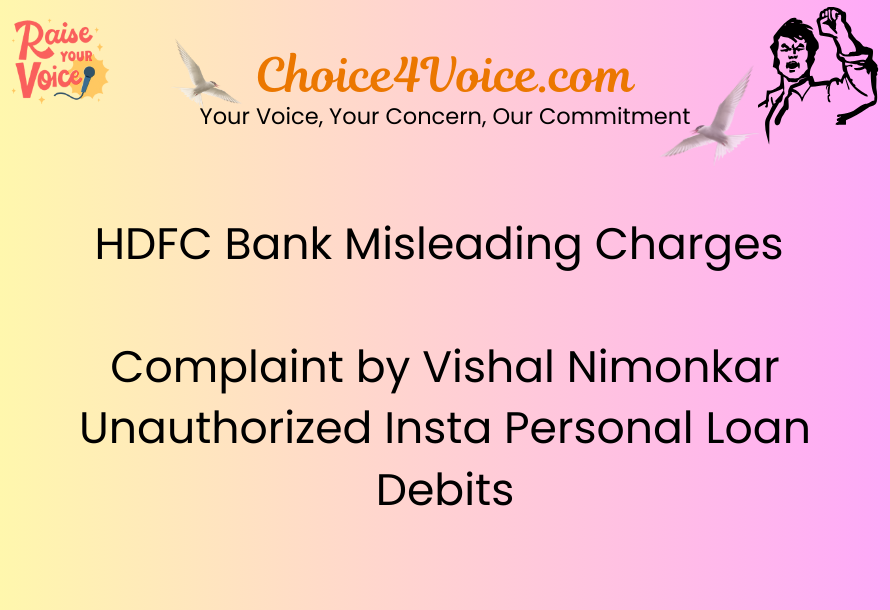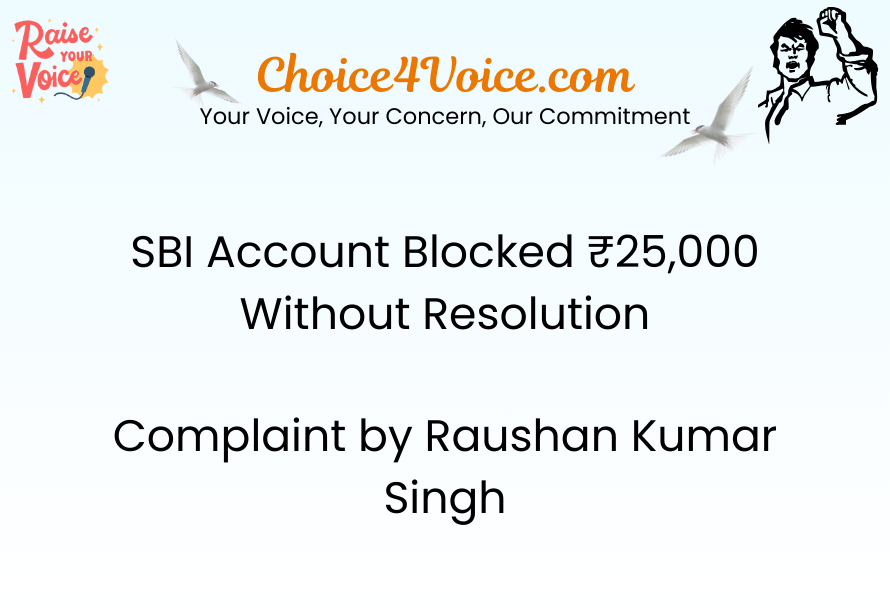If you’re experiencing this problem with this brand or any other company, submit your complaint and we may feature it on Choice4Voice.com.
Submit your complaint →Entrepreneur Anuradha Tiwari’s viral LinkedIn post calls on Minister Nitin Gadkari to create a public website listing every road project’s details including contractors, costs, and approvals. Millions support the demand for transparency, accountability, and road safety.
Choice4Voice.com highlights how citizens can join this movement and legally demand such transparency through RTI and grievance channels.
Complaint Summary
| Field | Details |
|---|---|
| Complainant Name | Anuradha Tiwari |
| Profession | Entrepreneur |
| Platform | |
| Issue Highlighted | Lack of transparency in India’s road construction projects |
| Concern Raised To | Nitin Gadkari, Minister of Road Transport and Highways |
| Main Demands | Creation of a public website showing road project details including contractors, cost, and responsible officials |
| Viral Impact | Millions of views and widespread debate on accountability and corruption in road construction |
| Keywords | Road safety, transparency, corruption, accountability, public data, highway maintenance |
Full Story
A viral social media post by Indian entrepreneur Anuradha Tiwari has triggered a nationwide discussion on the need for greater transparency in India’s road construction sector. In her public appeal to Union Minister Nitin Gadkari, she urged the government to create a publicly accessible digital portal detailing every ongoing and completed road project in India.
In her powerful statement, Tiwari wrote:
“Contractors are becoming billionaires while people die on roads. We need a public website that shows which contractor built the road, which babu approved it, total cost, ministers involved, and the firm responsible for maintenance.”
Her post resonated deeply with citizens frustrated by recurring road accidents, poor construction quality, and frequent allegations of corruption in infrastructure projects. Within hours, her message spread across social media, igniting conversations on public accountability and governance.
Public Response and Suggestions
The viral post received massive public support, with several users suggesting concrete solutions to improve transparency in infrastructure development. These included:
- A central road transparency portal showing details like project cost, contractor names, and department approvals.
- QR codes on highways allowing citizens to scan and view details about the specific road project and its contractor.
- Independent ombudsman-linked grievance portal for reporting potholes or maintenance failures.
- Mandatory disclosure of contractor affiliations to prevent conflict of interest or political favoritism.
Such measures, if implemented, could revolutionize how citizens monitor public spending and infrastructure quality in India.
Legal Case Can Be Filed
If transparency or accountability is denied in government infrastructure projects, the following legal and civic actions can be pursued:
| Applicable Legal Remedy | Relevant Authority / Platform | Purpose |
|---|---|---|
| Right to Information (RTI) Application | Ministry of Road Transport & Highways or NHAI | To obtain official data on contractors, budgets, and project details. |
| Public Interest Litigation (PIL) | High Court / Supreme Court | To demand systemic transparency and public disclosure mechanisms. |
| Complaint to CVC (Central Vigilance Commission) | cvc.gov.in | For corruption or favoritism in road tenders and approvals. |
| Complaint to Lokpal / State Lokayukta | lokpal.gov.in | For investigating misuse of public funds in infrastructure projects. |
| Citizen Grievance on CPGRAMS Portal | pgportal.gov.in | To raise official complaints on negligence, poor road quality, or delays. |
How Choice4Voice.com Can Help
Choice4Voice.com stands with citizens like Anuradha Tiwari who raise their voice for accountability and reform. Our platform helps consumers and citizens by:
- Publishing verified complaints to increase public pressure on authorities and companies.
- Drafting professional grievance letters that get attention from the right departments.
- Connecting with legal experts for filing RTIs, PILs, and consumer rights cases.
- Spreading awareness on LinkedIn and other public platforms to ensure the issue isn’t ignored.
If you want your voice to be heard, you can submit your concern via Choice4Voice.com. Genuine complaints are reviewed and featured to bring justice through collective visibility.
Author
Anuradha Tiwari is an Indian entrepreneur known for her sharp insights on public systems and governance. Her recent viral post urging Nitin Gadkari for infrastructure transparency has positioned her as a strong advocate for accountability in India’s road and transport ecosystem.
Frequently Asked Questions
Q1. What did Anuradha Tiwari demand from Nitin Gadkari?
She demanded a public portal displaying details of every road construction project including cost, contractors, officials, and maintenance firms.
Q2. Why is her post going viral?
Because millions of Indians resonate with the need for transparency and are frustrated by poor road quality and corruption.
Q3. Can citizens legally demand road project details?
Yes, through the RTI Act, any citizen can request details from NHAI or the Ministry of Road Transport.
Q4. What kind of transparency tools were suggested?
QR codes on roads, online public dashboards, and grievance redressal systems.
Q5. What laws ensure transparency in public projects?
The Right to Information Act (RTI) and Prevention of Corruption Act provide frameworks for transparency and accountability.
Q6. What can a citizen do if a road is poorly constructed?
They can file a complaint on CPGRAMS, report it to NHAI, or file a PIL in the High Court.
Q7. What is the role of NHAI in road maintenance?
NHAI oversees construction and maintenance of national highways, ensuring safety and quality standards.
Q8. How can QR codes help in transparency?
QR codes on highways can allow citizens to instantly view project information and report damage.
Q9. What happens if contractors are found violating quality standards?
They can face penalties, blacklisting, or criminal prosecution under contract law and corruption statutes.
Q10. Can contractors be held accountable for accidents due to poor roads?
Yes, if negligence is proven, they can face civil and criminal liability.
Q11. How to identify which contractor built a specific road?
You can request this information under RTI from the local PWD or NHAI office.
Q12. Can Choice4Voice.com help file RTI or PIL?
Yes, Choice4Voice.com assists citizens by preparing draft templates for RTI and guiding PIL submissions.
Q13. Is there any government website showing project data?
Some data exists on nhai.gov.in, but a unified, transparent portal for all roads is still lacking.
Q14. How does corruption occur in road contracts?
Through overpricing, false reporting, substandard materials, or politically influenced tendering.
Q15. What is the public reaction to this viral post?
Widespread support, with citizens calling for data-driven transparency and stronger oversight.
Q16. Has the government responded yet?
As of now, no official response has been issued to Anuradha Tiwari’s viral post.
Q17. Can journalists use Choice4Voice articles as sources?
Yes, provided they credit Choice4Voice.com as the source of the published consumer issue.
Q18. What are the long-term benefits of transparency in public projects?
Reduced corruption, improved road quality, efficient fund utilization, and enhanced public trust.
Q19. How can individuals contribute to transparency?
By filing RTIs, sharing verified complaints, and supporting awareness campaigns like this one.
Q20. Where can you submit a similar concern?
You can submit your concern or story on Choice4Voice.com, where verified complaints are featured for maximum impact.



